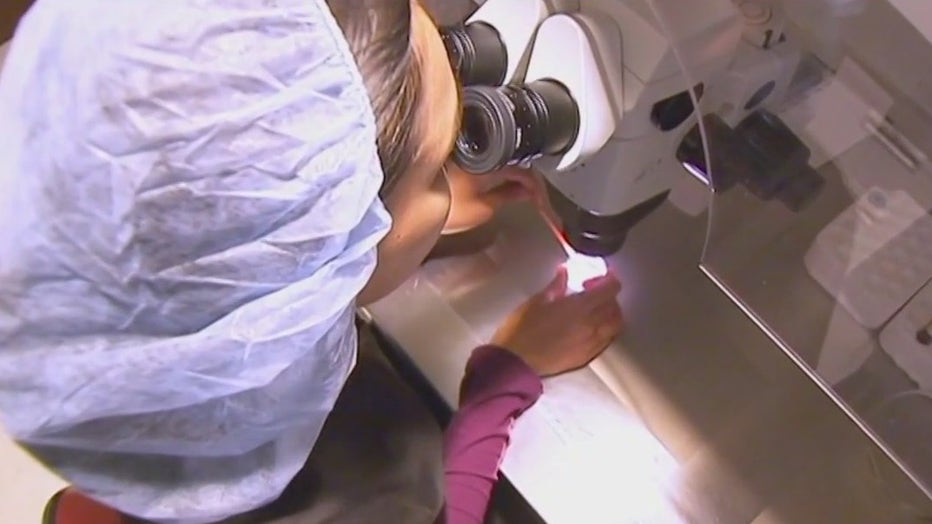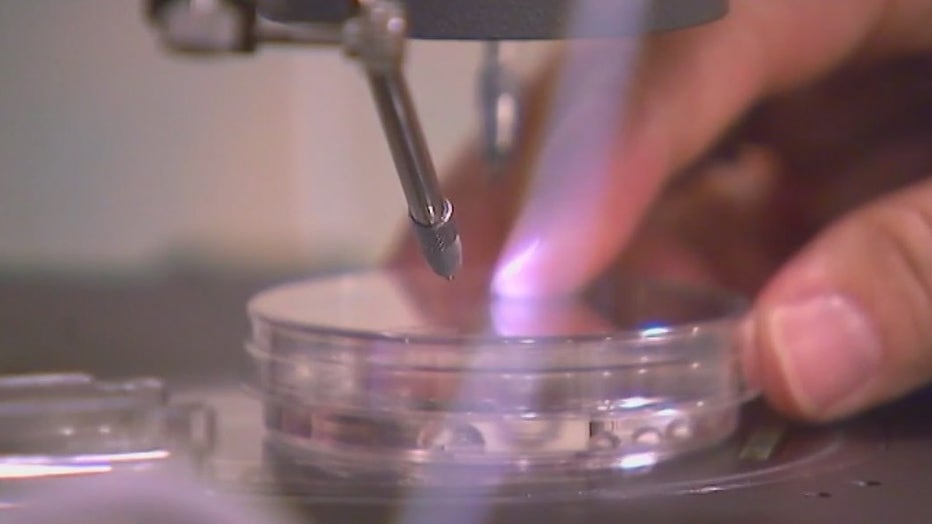Study finds 17% of women with unexplained infertility have gene variants linked to heart problems, cancer
Researchers look into connection between "unexplained infertility" and gene variants in women
About 15-20% of couples experiencing infertility don't have a clear medical reason why. They call it "unexplained infertility". Now, researchers are studying the connection between unexplained infertility and women who carry gene variants that could raise their risk of health problems down the road.
Atlanta - About 15-20% of couples who experience infertility don't have a clear medical reason why.
They call this unexplained infertility.
Researchers believe men and women with infertility may be at higher risk for developing certain heart problems down the road.
Dr. Lawrence Layman, a reproductive endocrinologist and geneticist at The Medical College of Georgia at Augusta University says they wanted to better understand what role genetics may play in that increased risk.
Both men and women experience infertility equally.
Layman says in this study, researchers only had data on women.

They sequenced the genes of 197 women with unexplained infertility and compared them to samples of a control group of women whose samples were part of a large biobank.
Dr. Layman says they found nearly 17% of the women with unexplained fertility had gene variants known to be linked either to common illnesses like heart disease and cancer, and to rare ones such as ALS.
"So 6.6% had pathogenic variants in genes that you can do something about," Dr. Layman says.
They call those "medically actionable" gene variants, linked to diseases that can be prevented or treated, like the BRCA1 and BRCA2 genes that can significantly raise a woman's risk of developing breast and ovarian cancer down the road.

"So we're detecting it before they're ever knowing they have it, and you can do something about it," Layman says. "That's what 'medically actionable' means."
More troubling, Dr. Layman says, about 10% of the women had gene variants tied to serious illness that cannot be prevented, such as Alzheimer's Disease, Parkinson's and ALS.
Layman says these are early findings, and more studies are needed.
"I think it's a beginning of the understanding," Layman says. "I mean, there's evidence that men and women with infertility have medical problems down the road. What is the genetic component?"
The answer, he says, is not yet clear.

"But, what we suggest is this suggests there's at least a genetic component to it, and it needs to be studied further. Ideally, we would have liked to have done 200 males to their partners, but we just didn't have DNA on those individuals."
But if the research findings hold up in follow-up studies, Dr. Layman says, doctors may want to follow fertility patients with gene variants more closely.
"Most of these diseases are fairly bad diseases," Layman says. "But if you can do something to try to treat them before they become severe or even manifest themselves, then that's really what this is all about."

